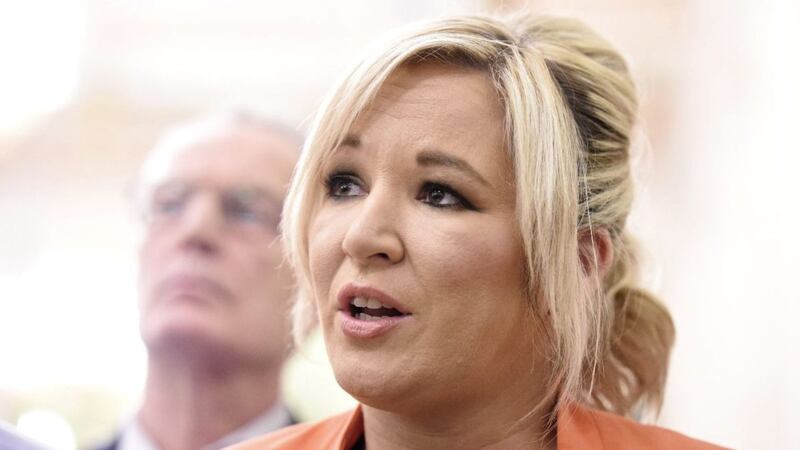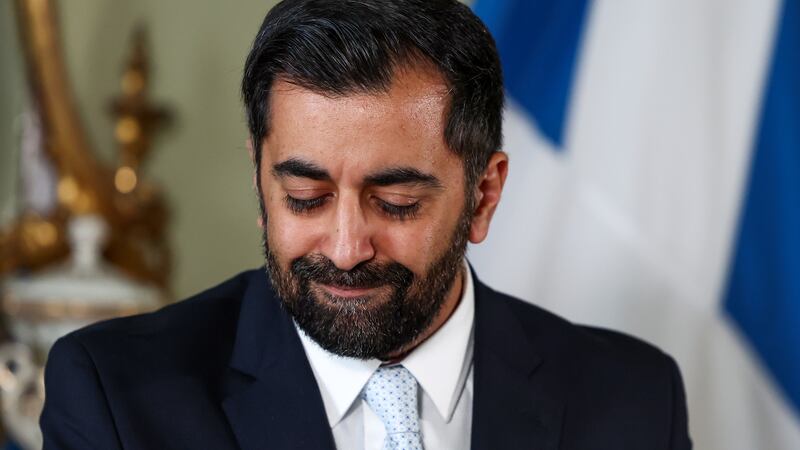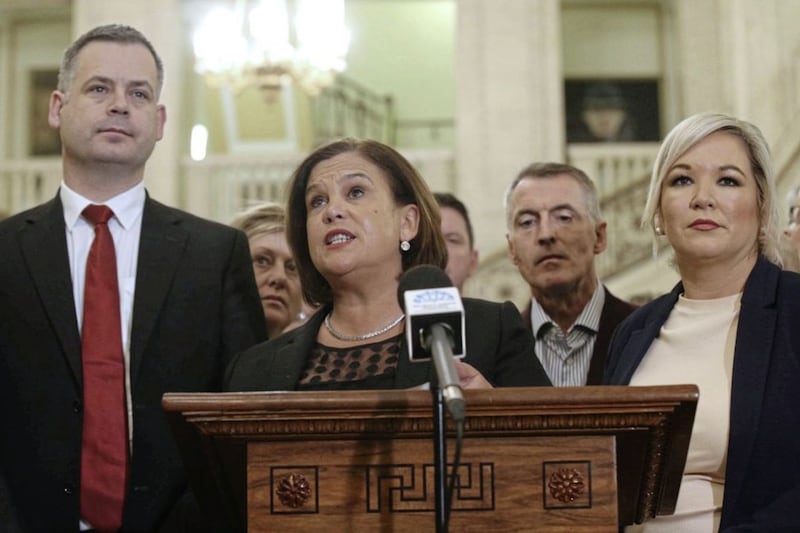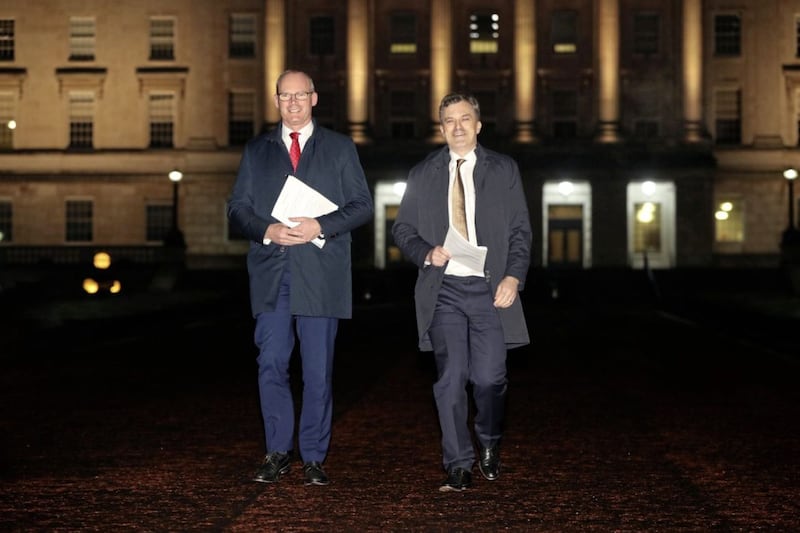The Dublin government has signalled that it will be seeking direct input into how Northern Ireland is governed following the DUP's decision to halt the latest effort to restore devolution.
The DUP was last night blamed for collapsing efforts to restore devolution after the latest round of negotiations came to an abrupt and unsuccessful conclusion.
Arlene Foster's late afternoon statement took most observers by surprise as there had been an expectation that differences between Stormont's two biggest parties could be resolved by the end of this week.
However, it appears the DUP leadership was spooked by unease within the party ranks and open opposition among broader unionism to Sinn Féin's demand for an Irish language act.
"Sinn Féin’s insistence on a stand alone Irish language act means that we have reached an impasse," Mrs Foster said in a statement.
She claimed respect for the "unionist and British identity" had not been reciprocated by republicans and that the deal as it stood was not a "fair and balanced package".
The DUP leader signalled an immediate desire for direct rule by calling on the British government to set a regional budget and to start "making policy decisions about our schools, hospitals and infrastructure".
At a Stormont press conference, DUP negotiator Simon Hamilton said the visit of Taoiseach Leo Varadkar and Prime Minister Theresa May on Monday had hindered efforts to secure a deal.
"I don't think it was entirely helpful in getting us to reach a successful conclusion," he said.
Sinn Féin deputy leader Michelle O’Neill said her party had negotiated in "good faith" and that an "accommodation" had been reached with the DUP leadership.
But she blamed the DUP for failing to "close the deal".
"They have now collapsed this process," she said.
"These issues are not going away."
Ms O'Neill said she would be in contact with the British and Irish governments and urged the DUP to reflect on its position.
Taoiseach Leo Varadkar said he "regretted" the DUP statement and said "power sharing and working together are the only way forward for Northern Ireland".
Tánaiste Simon Coveney described yesterday's developments as "very disappointing"
He said the Dublin government's role as co-guarantors of the Good Friday Agreement meant it had an "obligation to uphold and protect the letter and spirit" of the 1998 accord.
Secretary of State Karen Bradley urged all the parties to "reflect on the circumstances which have led to this and their positions, both now and in the future".
"The position of the UK government remains the same – devolved government is in the best interests of everyone in Northern Ireland and is best for the union," she said.
"I believe the basis for an accommodation still exists."
Mrs Bradley said she now needed to consider "practical steps" but that in the absence of an executive, the British government would have to take "challenging decisions".
SDLP leader Colum Eastwood called for the details of the proposed deal to be published.
He said his party would resist efforts to "hand power to a Tory/DUP government".
"The balance underpinning this place is that nationalism and unionism must work together – that’s a reality that some still fail to face," he said.
Ulster Unionist leader Robin Swann also called on Stormont's two biggest parties to publish details of what had been agreed to date.
"Print it, publish it online – do it whatever way they want, but it is vitally important that the people of Northern Ireland know what accommodation they did reach," he said.
"It's time for openness and transparency and for both parties to let everyone know where they got to, outside a select few in the leadership of each party."
Alliance leader Naomi Long accused the two governments of being "too optimistic".
She said the DUP and Sinn Féin had been "stringing them along".
Shadow Northern Ireland secretary Owen Smith said it was "desperately disappointing news, especially as there had been widespread hope last week that a deal might be reached".
Blaming the "DUP's unwillingness to accept legislation to support the Irish language or marriage equality" for the collapse he said:
"Karen Bradley will now have to explain how she hopes to get the DUP back to the table, and if that proves impossible, how she is going to take forward issues such as equal marriage, as well as dealing with tough decisions on health, education and infrastructure that have been left unresolved for over 400 days."








